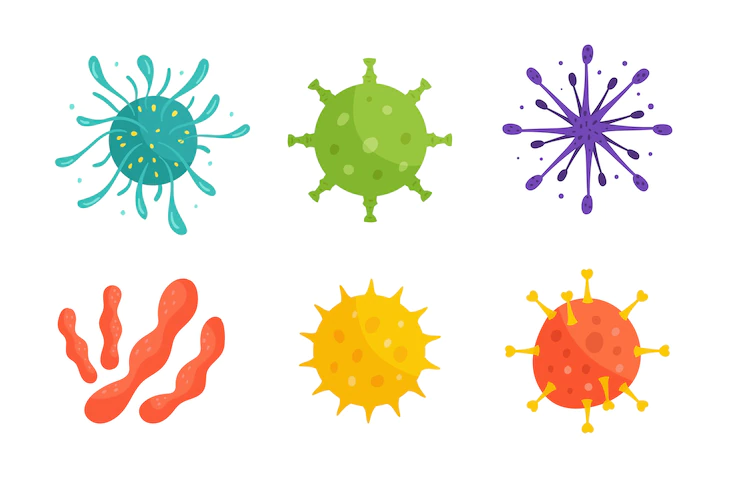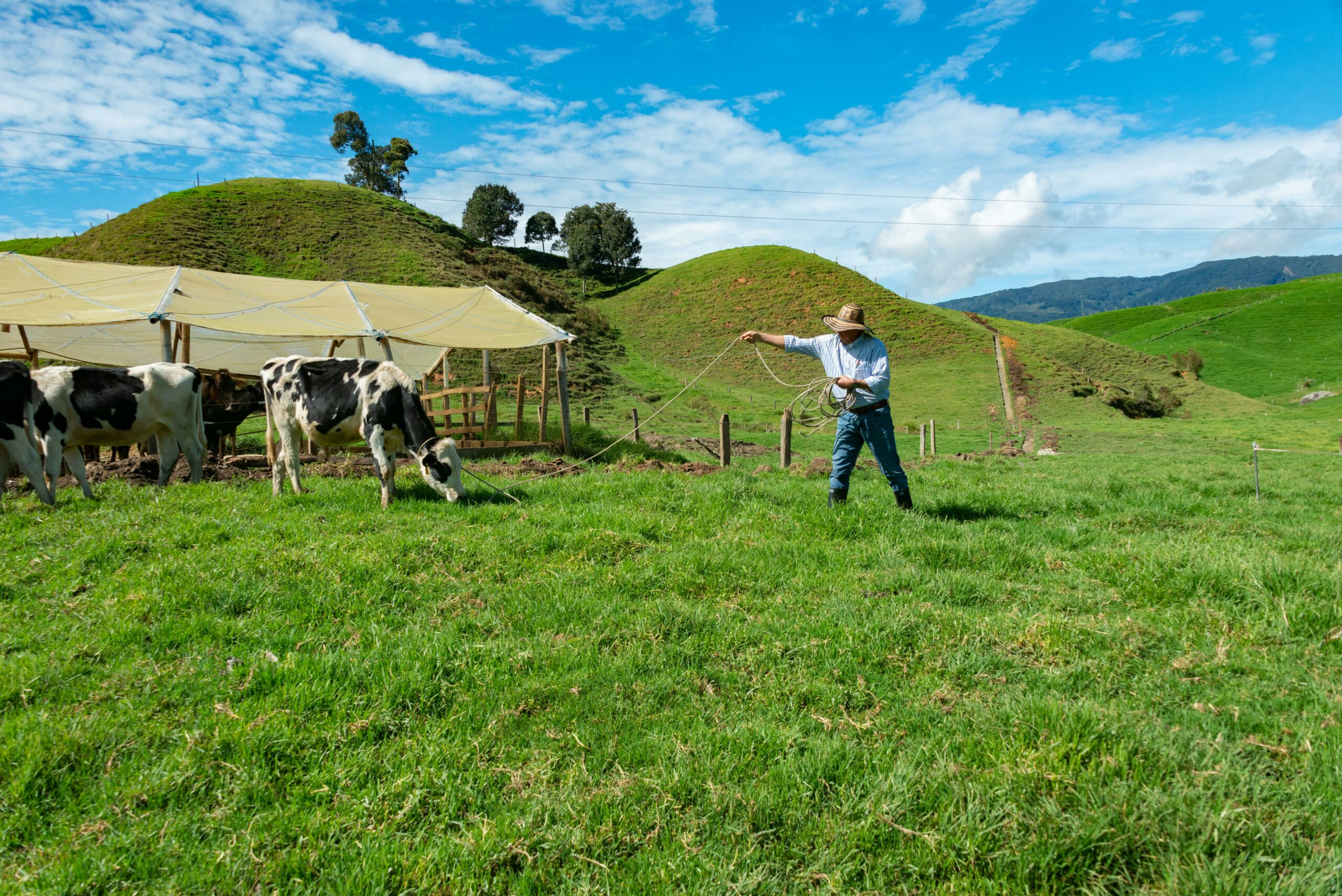
14 Crucial Personal Hygiene Habits for Kids
The human body is designed to live properly as long as it receives the necessary needs such as food, water, and oxygen. All the body parts work in harmony to perform their destined functions to keep the body healthy and alive.
Healthy bodies enable us to do thousands of functions that provide a good, happy life. For example, we can think, learn, talk, work, walk, run, laugh, sleep, etc.
Diseases occur when something goes wrong in the body and disrupts the harmony with which organs work. So they start to malfunction. In turn, this causes us to feel pain and suffering. Diseases highly affect our quality of life and decrease our happiness.
There are multiple things that cause diseases. Some of them are a result of bad habits. For example, eating too much junk food can lead to heart disease. Other diseases are caused by bacteria, viruses, fungi, and protozoans. These are microorganisms that become very dangerous and infectious under certain conditions.
Scientists refer to those harmful microorganisms like germs.

Once germs enter the human body, they start messing up with its organs, causing them to break down and eventually resulting in diseases.
Some diseases are not very bad and can be cured in a few days like winter colds and influenza. Some are, still, not curable and they kill patients slowly and over a long period of time such as cancer or AIDS. Other diseases are also not curable but can be tamed with continuous life-long medication such as diabetes and asthma.
But how do diseases spread?
Well, many diseases are infectious. That means the germs that cause them can transfer from one person to another by different means. Some of these means include touch, cough, sneeze, and even blood transfer. For instance, if a person with a cold coughs in front of another healthy person, the latter is more likely to get a cold too.
Coronavirus
When diseases transfer at a high rate, infecting large numbers of people in one or multiple countries, they can cause a pandemic. This is a term we have all been recently familiar with. Pandemics usually have big impacts on people, countries, and the world as a whole.
Well, we have seen this to be true. The coronavirus pandemic has put the whole world on pause for over two years now.
Besides the millions of people the virus killed, the coronavirus pandemic caused economic catastrophes all around the world. Millions of people lost their jobs. All of a sudden they lost their source of income which allowed them to eat properly, pay their bills, or buy medicine.
In addition to that, the long lockdown created awful habits that people slightly fell into. An example of this is when people spend so much time on their phones, scrolling up and down on social media sites because this was the only way to get in touch with other people.
Long hours went by with kids, teenagers, and adults staring at their phones. That turned into an addiction over time and hugely affected their daily productivity.
Another bad habit that people slowly developed during the lockdown is eating so much junk food. Although people were staying at home, which means they had more time to cook, many of them turned to consume more junk food than they ever did before the pandemic. And with no one allowed to go outside, they started gaining weight due to the lack of physical exercise.
By the time the coronavirus outbreak started globally in March 2020, scientists could have already studied the virus and identified its dangers. The virus turned out to be severe. It causes serious lung damage that can lead to death.
Scientists could work out how the virus spreads. This happens when people breathe in the air that contains it. Since the virus can also stay on surfaces, anyone who touches a contaminated surface then his eyes, nose, or mouth gets infected.
One piece of good news about the virus was its formation. The coronavirus is covered in a coat of fats that protects it. It turns out that water and soap can remove this coat of fats and kill the virus!
Luckily for us, all of these findings have somehow given us the weapon to fight this nasty virus. So in March 2020, the World Health Organization or WHO started urging people to follow a series of actions to slow down the spread of the virus. Here they are:
- Avoid being in crowded places.
- Wear a face mask wherever you go.
- Leave a distance of 1.5 to 2 metres from others.
- Avoid touching surfaces or faces.
- Wash your hands with soap and water for 20 seconds or more.
- Regularly disinfect hands and surfaces with alcohol sanitisers.
In other words, slowing down the spread of coronavirus mostly comes down to personal hygiene.
14 easy personal hygiene habits for kids

Like the coronavirus, so many diseases that have widely spread before and killed millions of people could have been tamed if people cared a little more about their personal hygiene. Personal hygiene kills the germs that we carry with us everywhere.
When people repeat personal hygiene practices and turn them into habits, they protect themselves and others by stopping those microorganisms from getting inside their bodies. During the time of a pandemic, people can stop the rapid spread of the virus and help the government of their country better contain the diseases.
When there is no pandemic, personal hygiene is also required to keep people healthy and allow them to enjoy a better life. The easiest way to build personal hygiene habits is by teaching them to kids and urging them to repeat those habits over a certain period of time.
That being said, here are some important personal hygiene habits.
(1) Wash your hands more often
Well, as we clarified earlier, washing hands with water and soap for at least 20 seconds kills germs, stops them from transferring to others, and keeps your hands clean. You should wash your hands in the following events:
- Before and after eating.
- Before touching any food.
- After touching unclean surfaces.
- After touching pets like cats and dogs.
- After using the toilet.
- After sneezing, coughing, or blowing your nose.
- If your hands look dirty anyway.
It is not just your hands that you should wash but also your face and feet. You should do that after you wake up or spend time playing around, especially in open areas as well as before you go to bed.
(2) Brush your teeth twice a day
Teeth are one important organ without which we will not be able to properly consume food nor even enjoy the hundreds of tasty things we can eat. And just like anything else, teeth can be damaged if not taken care of.
There are bacteria in our mouths. After we consume food, especially sugary stuff, some of it remains on and around our teeth. If we do not brush our teeth after eating, the bacteria in our mouth feed on the food remaining and turn it into acid.
This acid dissolves in the mouth and causes cavities and tooth decay. When these cavities are not cured, they enlarge, eat up the teeth, leave behind holes, and even reach the nerves.
Deep cavities cause nerves to be inflamed, making the person feel severe pain. Inflamed teeth require an immediate cure called a root canal. Root canals involve long treatment sessions. They hurt a lot but most dentists use anaesthesia as they perform the treatment.
In addition, such treatment is quite expensive too. A root canal for one tooth performed by a private dentist costs around £250 to £500 in the UK.
That being said, it is absolutely necessary to brush your teeth at least twice a day and preferably multiple times a day after consuming food. To help protect your teeth and avoid painful consequences, it is recommended you cut down on sweets and sugary food.
Because cavities are really serious, dentists throughout history have tried to find materials to brush the teeth with. So they came up with the toothpaste. Then they started adding different other materials to them. They thought it could help fight cavities.
In 1955, a research team in the American company Procter & Gamble found out that fluoride, which is a chemical component, is very effective in reducing cavities and cleaning the teeth. So they added it to the toothpaste.
Therefore, you should choose a toothpaste which contains fluoride. Other than that, nothing else really makes a big difference.
(3) Visit the dentist regularly
Brushing teeth is definitely important and does take so much care of your teeth. However, it is not everything. Sometimes problems that do not cause any pain may appear without you knowing.
Make sure you visit the dentist regularly to have a checkup on your teeth and find out if anything has gone wrong to start an early treatment.
(4) Cover your nose and mouth when coughing and sneezing
We mentioned that some bacteria and viruses transfer by breathing air that contains them. If we are infected and then we cough or sneeze, we push the virus in the air. This causes others to inevitably breathe it in and get infected too.
Thus, covering your nose and mouth when you cough or sneeze is highly important. You must also do this using a paper tissue and not with your hands. If you cover your mouth and nose with your hands, you must wash them right after. Otherwise, you are at risk of transferring the germs to everything you touch.
In both cases, make sure you wash your hands with soap after you cough or sneeze.
Also if you happen to be in a closed place where some people might have a cold, you should wear a face mask to prevent yourself from breathing the contagious air. You must also do this if you are in a dusty or polluted place.
(5) Wear clean clothes
It is true that we look better when we wear clean, neat clothes, but it is a necessary thing too to stay healthy. Clothes collect dirt and germs the longer we wear them while doing different activities. This means we are at risk of getting these germs into our system if we do not change clothes. We also threaten others by transferring these germs to them.
Similarly, we must wash clothes with water and detergent for the same reason we have to wash our hands: to kill bacteria and viruses. To have a more effective clothes washing experience, it is recommended we use warm or hot water since it kills germs.
(6) Trim your nails and keep them clean
Long nails collect dirt and are a perfect place for germs to hide in, especially since many kids spend most of their time playing around and moving from here to there.
Consequently, trimming nails regularly is necessary to kill those germs. One also should make sure nails stay clean most of the time.
(7) Use tissue paper
One easy way to stay as clean as possible, especially when being outdoors is by using tissue paper. You can perfectly use them to wipe and dry your hands and face after washing them. Tissue paper is perfect for sucking water and liquids.
Wet wipes are also a very good choice if there is no water around. Because they contain either soap or alcohol, wet wipes are perfect for killing germs on hands, faces, and surfaces as well.
They are cheap, light-weighed, easy to carry around, and can be found everywhere.
(8) Shower regularly
Showering is vital to keep a clean body and stay healthy. It removes dirt, kills any bacteria found on the body, gets rid of dead skin cells, cleanses the pores, and allows them to breathe.
In addition, showering is a perfect way to feel comfortable, relaxed, and refreshed.
Other habits
Here are some more tips to boost your personal hygiene to kill and stop the transfer of germs and stay clean and healthy:
- Do not share hairbrushes or toothbrushes with anyone.
- Use shampoo to wash your hair.
- Wash fruits and vegetables before eating them.
- Keep your room clean.
- Use tissue paper products only once.
- Flush the toilet after using it.
How to help kids develop personal hygiene habits
It might be hard to make kids stop and listen to you giving advice, especially at a young age. They are extremely distracted by the tremendous energy they have. All they want is to run around and play.
On the other hand, building habits requires consistency. In other words, parents need to find ways to encourage their kids to perform those daily routines until they turn into habits. Here are some ways we think can help.
Set an example
One thing that kids sure do is imitate their parents. So to make kids build personal hygiene habits, parents should set an example. If your kids see you wash your hands more often and brush your teeth daily, they will automatically start doing the same thing.
Educate your kids
Parents should also educate their kids early on about germs, but in a way that does not freak them out. Try to find books or online resources that explain what germs are and how they transfer in an easy way. There are hundreds of animated videos that kids will surely enjoy watching.
This also teaches kids to know why they are doing what they are doing.
Make it fun
Third, have fun. Unlike adults, kids will not do anything unless they have fun doing it. Think of ways to turn those daily personal hygiene habits into fun activities. For instance, all kids love to play with soap bubbles during a bath. This will not just make them build the habit, but they will love it too.
Make it a routine
To help kids stay consistent with these daily habits, it is important to set routines that take place during specific periods of the day. For instance, a routine of using the toilet, washing their hands and face, brushing their teeth, and wearing new clothes is usually followed in the morning. Washing hands goes before and after eating.
This will make it easier for kids to stick with the habits as they are directly connected with certain actions.
Conclusion
We live in our bodies before we live in other places. They are our most important asset to lead a good life. By their mere design, our bodies can function perfectly. It is how we deal with them that can change the way they operate and eventually cause us to suffer.
Most diseases are caused by germs getting inside our bodies and messing up with our organs. Most of these germs transfer to us if we touch the surfaces that are contaminated with them. Also coughing and sneezing release germs into the air. We can easily get infected if we breathe that air.
So we can stop this from happening and even protect ourselves and others if we implement personal hygiene habits. In this article, we looked into 14 different ways to stay clean and healthy.
Our utmost weapons against germs are water and soap. Washing our hands regularly especially when we do anything that makes them dirty is important to kill germs. We must also avoid touching our faces or other surfaces before we do that so as not to transfer bacteria.
Food is wonderful but the food that remains on our teeth is dangerous. Brushing our teeth at least twice daily with a toothpaste that contains fluoride cleans them and kills cavities. We must also eat fewer sweets because sugars are what create cavities in the first place.
Every other habit that contains washing with water and soap helps us and the surroundings stay clean and healthy. That involves washing clothes and wearing clean ones, regularly showering, trimming and cleaning nails as well as using tissue paper and wet wipes.
Habits sure take time and effort to be a part of our routine; however, once this happens, we automatically apply them effortlessly. Teaching kids to adopt personal hygiene habits from an early age helps them stay healthy, protect others, and learn to take care of themselves.
Why not subscribe to our LearningMole Library for as little as £1.99 per month to access over 1200 fun educational videos.


Leave a Reply